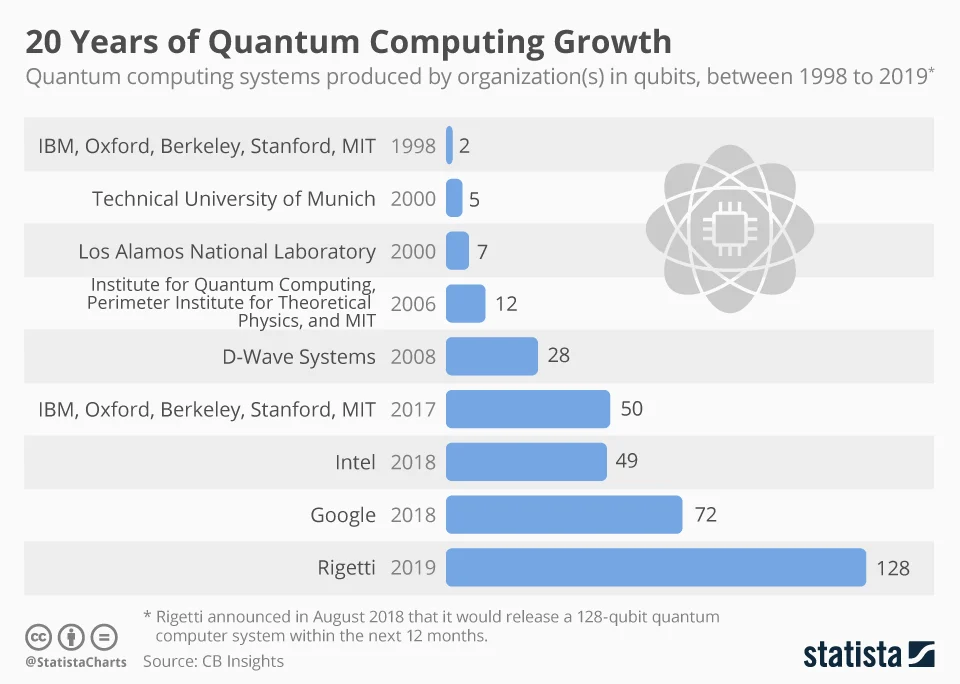The Rise of Quantum Computing: Implications for Businesses
Quantum computing, a revolutionary technology with the potential to solve complex problems at an unprecedented speed, is gaining momentum in the business world. As businesses increasingly rely on data-driven decision-making and advanced computational power, the rise of quantum computing presents both opportunities and challenges. Quantum computing’s ability to process massive amounts of data and perform complex calculations has the potential to revolutionize industries such as finance, healthcare, and logistics. However, businesses will need to adapt to the unique requirements of quantum computing, including addressing security concerns and developing new algorithms. As quantum computing continues to advance, businesses must stay informed and prepared to harness its potential for competitive advantage.
The Basics of Quantum Computing
Quantum computing is a revolutionary field that utilizes the principles of quantum mechanics to process and store information. Unlike classical computers, which use bits to represent information as either 0 or 1, quantum computers use quantum bits, or qubits, which can exist in multiple states simultaneously due to the phenomenon of superposition. This allows quantum computers to perform complex calculations at a much faster rate than classical computers, making them ideal for tackling problems that are currently intractable with classical computing methods.
Furthermore, quantum computers can also take advantage of another quantum property called entanglement, which allows qubits to be interconnected in such a way that the state of one qubit is dependent on the state of another, regardless of the physical distance between them. This enables quantum computers to process information in a highly parallel manner, leading to exponential increases in computational power.
Application Areas of Quantum Computing
Quantum computing has the potential to revolutionize various industries and fields, including cryptography, drug discovery, materials science, optimization problems, and artificial intelligence. In the realm of cryptography, quantum computers could break widely used encryption methods, prompting the need for quantum-resistant cryptographic algorithms. In the pharmaceutical industry, quantum computing can accelerate the process of drug discovery by simulating molecular interactions with high precision. Additionally, quantum computing can significantly enhance the optimization of complex systems, such as supply chains and financial portfolios, by quickly solving complex mathematical models.
Moreover, quantum computing holds promise for advancing machine learning and artificial intelligence by efficiently processing and analyzing large datasets. This can lead to breakthroughs in creating more powerful AI models and algorithms, ultimately transforming the capabilities of AI systems across various domains.
Challenges and Limitations of Quantum Computing
Despite its potential, quantum computing faces several challenges and limitations that hinder its widespread adoption. One of the primary challenges is the delicate nature of qubits, which are highly susceptible to environmental interference and decoherence. Maintaining the coherence of qubits for extended periods is crucial for the reliable operation of quantum computers, requiring sophisticated error correction techniques and fault-tolerant designs.
Furthermore, the current state of quantum hardware is still in its early stages, with limited qubit counts and high error rates. Scaling up quantum systems to a sufficient number of qubits while minimizing errors remains a significant technical obstacle. Additionally, the development of quantum algorithms tailored for specific real-world problems is another challenge that researchers and businesses must overcome to fully harness the potential of quantum computing.
Impact on Business Operations
The rise of quantum computing has profound implications for businesses across various sectors. As quantum computing matures, businesses can leverage its capabilities to solve complex optimization problems, enhance data analytics, and improve cybersecurity measures. For example, logistics companies can utilize quantum computing to optimize their supply chain routes and minimize operational costs, while financial institutions can employ quantum algorithms to improve portfolio management and risk analysis.
Moreover, the potential ability of quantum computers to break existing cryptographic methods poses a significant concern for cybersecurity. Businesses and governments will need to prepare for the post-quantum cryptography era by developing and implementing quantum-resistant encryption techniques to safeguard sensitive data and communications from future quantum threats.
Preparing for the Quantum Computing Era
As quantum computing continues to advance, businesses need to start preparing for its potential impact. This involves staying informed about the latest developments in quantum technology, investing in relevant research and development efforts, and exploring potential use cases for quantum computing within their operations. Collaboration with academia and industry experts in the field of quantum computing can also provide valuable insights and strategic partnerships for businesses looking to navigate the quantum computing era.
Additionally, businesses should assess their cybersecurity posture and consider the implications of quantum computing on their existing encryption methods. Developing a roadmap for transitioning to quantum-resistant cryptographic algorithms and ensuring the security of sensitive data in the post-quantum era will be essential for mitigating future risks.
Ethical and Societal Considerations
The advancement of quantum computing raises important ethical and societal considerations that must be addressed as the technology evolves. As quantum computers have the potential to significantly impact fields such as healthcare, finance, and national security, ethical frameworks need to be established to ensure responsible and equitable use of quantum computing capabilities. This includes considerations for data privacy, algorithmic bias, and the potential societal implications of quantum-driven disruptions across various industries.
Furthermore, the global landscape of quantum technology and its implications for national security and geopolitics necessitate international collaboration and governance frameworks to manage the responsible development and use of quantum computing. Cooperation between governments, businesses, and research institutions will be crucial for establishing norms and regulations that promote the ethical and secure advancement of quantum computing.
Investment and Innovation in Quantum Technologies
The increasing momentum in quantum computing research and development has spurred significant investment and innovation in quantum technologies. Governments, major technology companies, and startups are actively investing in quantum hardware, software, and algorithm development to drive the next wave of quantum innovation. This includes the establishment of quantum research centers, quantum computing as a service (QCaaS) platforms, and collaborative initiatives aimed at accelerating the practical realization of quantum computing.
Moreover, the integration of quantum computing with other emerging technologies, such as artificial intelligence, blockchain, and advanced materials, presents new avenues for innovation and cross-disciplinary research. As businesses seek to capitalize on the potential of quantum computing, strategic partnerships and investments in quantum technology ecosystems will play a crucial role in shaping the future of quantum-enabled solutions and applications.
| Implication | Description |
|---|---|
| Increased computing power | Quantum computing has the potential to solve complex problems at a much faster rate than classical computers. |
| Impact on cybersecurity | Quantum computing could break traditional encryption methods, leading to the need for quantum-resistant cybersecurity solutions. |
| Advancements in AI and machine learning | Quantum computing could enhance AI and machine learning capabilities, leading to more efficient and accurate data analysis. |
| Disruption of industries | Industries such as pharmaceuticals, finance, and logistics could be transformed by the capabilities of quantum computing. |
| Investment and research opportunities | Businesses have the opportunity to invest in and conduct research on quantum computing to stay competitive in the future. |
Quantum computing has the potential to revolutionize the way businesses operate, from solving complex problems to impacting cybersecurity and driving advancements in AI. Businesses need to stay informed and consider investing in quantum computing to stay ahead in a rapidly evolving technological landscape.



